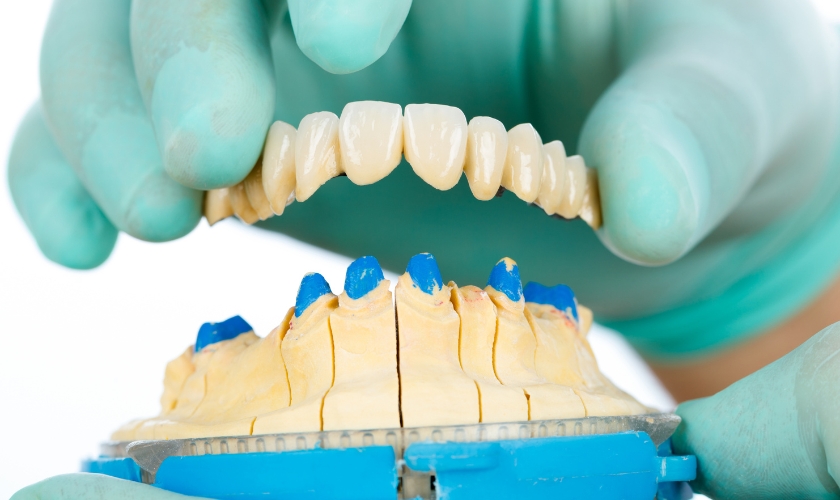We are not a registered Medicare/Medicaid Provider
5 Essential Tips for Maintaining Your Dental Bridge

Dental bridges can significantly improve your smile and restore your ability to chew comfortably. After investing in this dental restoration, it’s vital to care for it properly to ensure its longevity and your overall oral health. Here are five essential tips to help you maintain your dental bridge effectively.
Prioritize Oral Hygiene
A robust oral hygiene routine is crucial for preserving your dental bridge. Brush your teeth at least twice daily using fluoride toothpaste. Pay special attention to the area surrounding your bridge. Use a soft-bristled toothbrush to clean the bridge and the abutment teeth (the teeth supporting the bridge).
Flossing is equally important but may require some adjustments with a bridge. Traditional floss might be challenging to use, so consider using a floss threader or a water flosser. These tools can help you clean between the bridge and the supporting teeth effectively. By maintaining good oral hygiene, you can prevent plaque buildup and reduce the risk of gum disease, which could compromise your bridge.
Regular Dental Check-Ups
Scheduling regular check-ups with your dentist is vital for monitoring the condition of your dental bridge. During these visits, your dentist can assess the bridge, check for any signs of wear or loosening, and clean areas that may be difficult to reach at home. Typically, you should visit your dentist every six months or as recommended.
These appointments are also an excellent opportunity to discuss any concerns you may have about your dental bridge. Early detection of issues can save you from more complicated procedures down the line, ensuring your bridge remains in excellent shape.
Avoid Hard and Sticky Foods
While enjoying your favorite foods is essential, certain types of foods can jeopardize the integrity of your dental bridge. Hard foods, like nuts or hard candies, can put excessive pressure on the bridge, potentially leading to damage. Similarly, sticky foods such as caramel or chewing gum can dislodge the bridge or cause discomfort.
To protect your dental bridge, opt for softer foods that are easier to chew. Foods like yogurt, mashed potatoes, and well-cooked vegetables are great choices. Being mindful of what you eat will help maintain the stability and longevity of your dental restoration.
Manage Teeth Grinding
Teeth grinding, also known as bruxism, can put undue stress on dental work, including bridges. If you grind your teeth at night, consider speaking with your dentist about using a mouthguard. A custom-fitted mouthguard can help protect your bridge and prevent damage caused by grinding.
Recognizing the signs of teeth grinding is vital. Common symptoms include jaw pain, headaches, and worn-down teeth. If you suspect you are grinding your teeth, addressing the issue early can help maintain your dental bridge and protect your overall oral health.
Monitor for Changes
Be vigilant in observing any changes in your dental bridge or the surrounding areas. Sensitivity, discomfort, or changes in the fit of your bridge can indicate an underlying issue. If you notice any of these symptoms, don’t hesitate to contact your dentist.
Changes may signal that your bridge is loosening or that there is a problem with the supporting teeth. Quick action can prevent more significant problems from arising, ensuring your dental bridge continues to serve its purpose without complications. Caring for your dental bridge goes beyond simple maintenance; it’s an investment in your health and well-being. By prioritizing good oral hygiene, keeping up with dental appointments, avoiding certain foods, managing teeth grinding, and monitoring any changes, you can ensure the longevity of your bridge. If you’re ever in doubt or need assistance, remember that your local dentist in Denville is just a visit away, ready to support your dental journey.